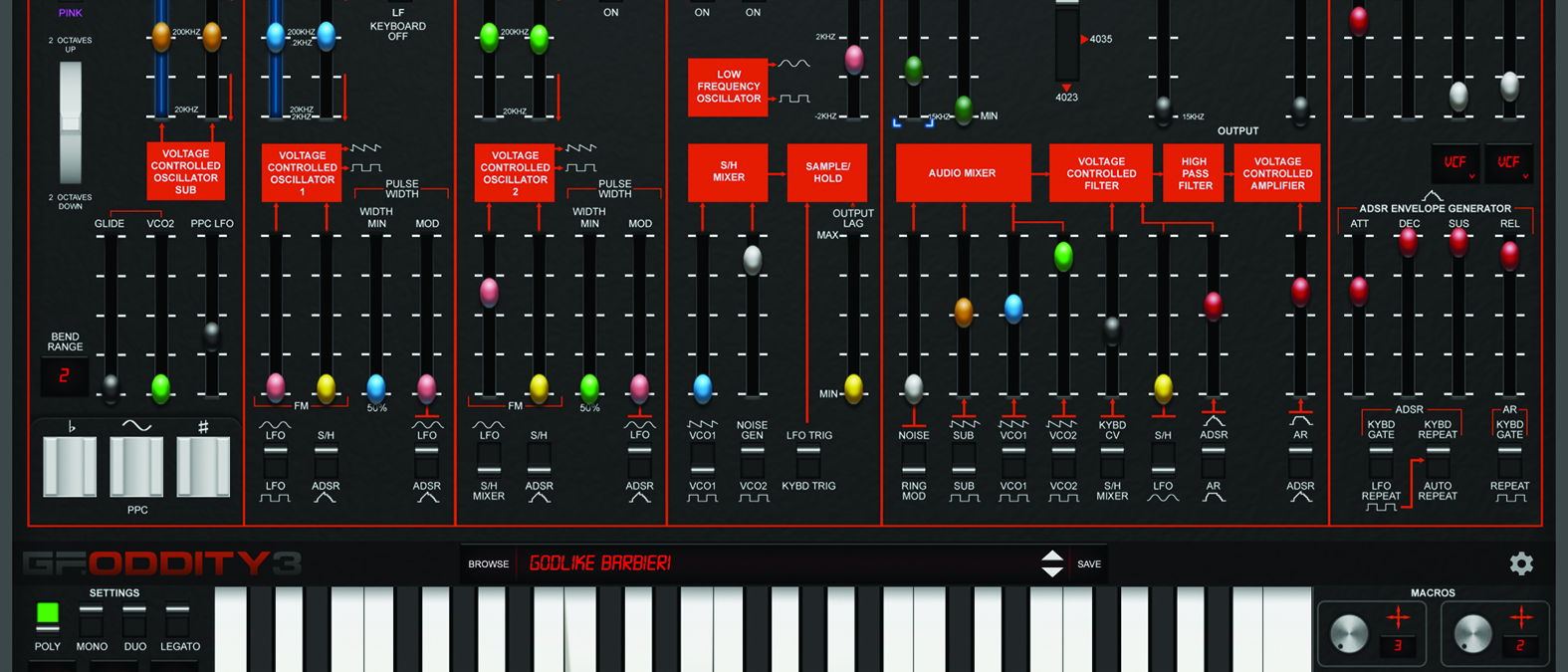MusicRadar Verdict
Oddity3 looks good, plays great and sounds awesome, and is now so much more than a classic synth emulation.
Pros
- +
New Macro feature.
- +
Powerful X-Modifier modulation.
- +
Fantastic new patches.
- +
Quality new graphics with resizable window.
- +
Choice of Odyssey-inspired skins.
Cons
- -
Nothing.
MusicRadar's got your back
GForce Software Oddity3: What is it?
GForce Software was early to the game with its synth emulations, and it’s fair to say its original ARP Odyssey-inspired plugin instrument helped cement the brand's reputation as a quality, forward-thinking developer with a healthy reverence for the hardware it clearly loves. So here we are, some 21 years later, and the Oddity is getting an upgrade to version 3.
Based around twin sync-able oscillators with a tunable sub, Oddity3 (AAX, AU, VST, VST3, Standalone) works in monophonic, duophonic and polyphonic modes (with up to 16-note polyphony). You have highpass and lowpass filters, with the latter available in three flavours to match the three designs used over the life cycle of the hardware synth. There’s also a dedicated keyspan Spread panner and a Ring Modulator that creates an additional complex waveform by inter-modulating the two main oscillators.
Parameter modulation is vastly more flexible than the original synth, and the two X-Modifiers – X-LFO and X-ADSR – are easy to set up and very powerful as you have one of each per parameter. Oddity3 also includes a software emulation of the late MK2/Mk3 Odyssey proportional pitch control (PPC), for pitch bend and pitch modulation. Modulation is via a dedicated LFO and pitch bend provides up to a whopping +/-4 octaves.
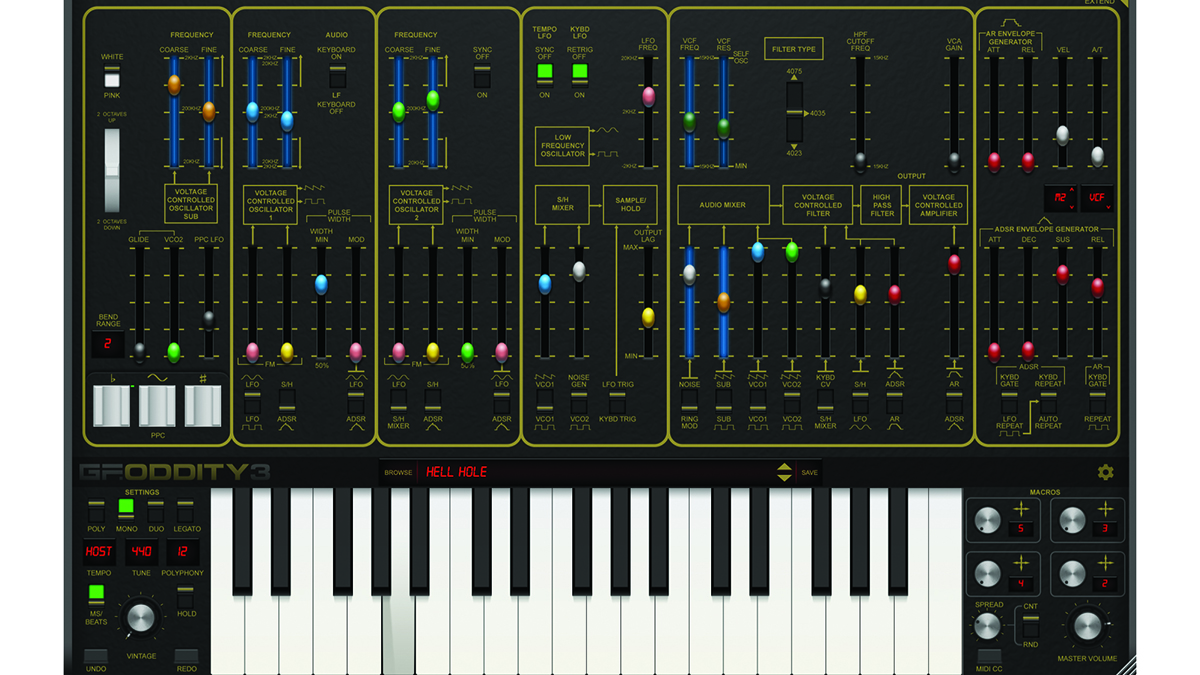
GForce Software Oddity3: Performance and verdict
So what else is new? First up, Oddity has always featured the black and orange ARP-style visuals. Oddity3 revamps these with a vastly smoother look, fully flexible window resizing and a choice of three skins based on the three original Odyssey versions (MKI, II and III).
The X-Modifiers are now joined by three effects – Delay, Distortion and Reverb (all of which can be individually locked when you change presets), and this whole top panel is now foldaway. The play mode has been rehoused next to the keyboard and the keyboard is now flanked by some further new features, including four Macros and a Vintage flavour control.
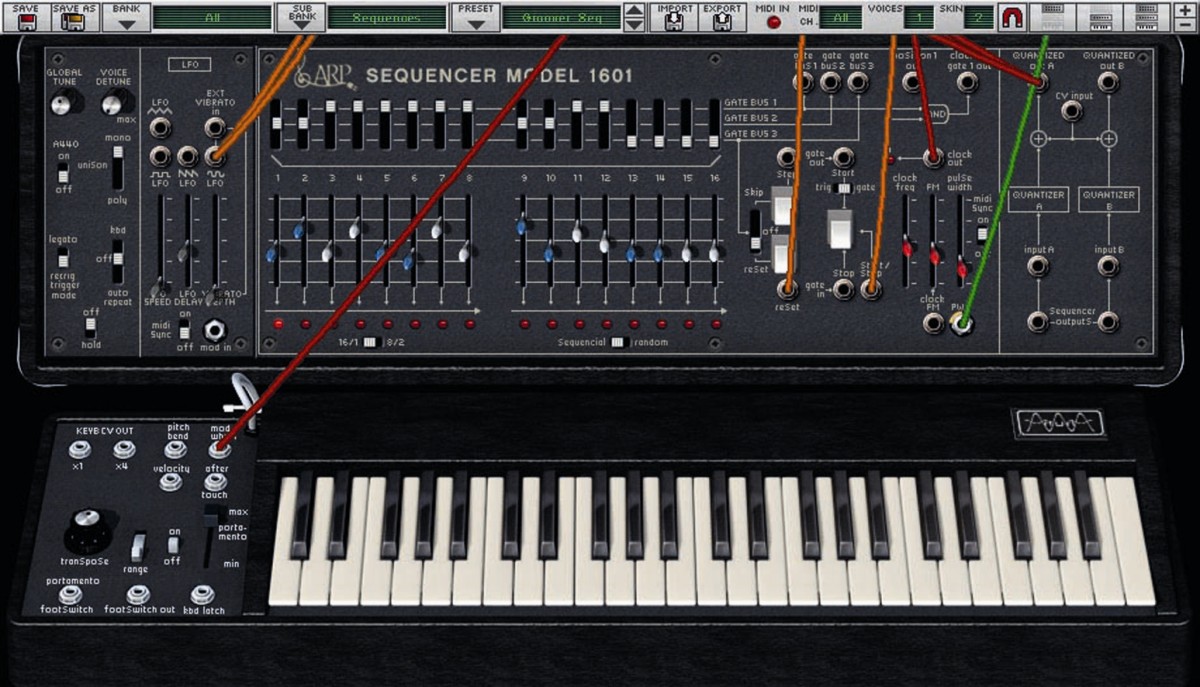
• Arturia ARP 2600 V
This excellent 2600 emulation from Arturia delivers a similar sonic vibe to the Odyssey.
• AIR Music Tech Odyssey
A circuit-modelled quality emulation of the Odyssey from the WayOutWare team.
Also new are extensive velocity and aftertouch assignments (seven and 10 targets respectively) and both can control the four Macros. Rounding things off is a brand new Browser (see Presets below).
With the velocity and aftertouch assignments, GForce has seriously upscaled the playability in Oddity3. We particularly like being able to control the Macros, which in themselves offer awesome flexibility. Add to that the easy drag-and-drop Macro assignment, and the slider-heavy Odyssey-style interface really comes alive. GForce synths always sound incredible and Oddity3 is no exception. But what really caught our attention were the new patches.
Want all the hottest music and gear news, reviews, deals, features and more, direct to your inbox? Sign up here.
First up, they all come loaded with four Macros, so they’re instantly tweakable in fun and creative ways. But secondly, the patch programming is simply awesome, making impressive use of the X-Modifiers and extra effects to help you deliver rich, developing, individual sounds that will really enhance your productions in a big way.
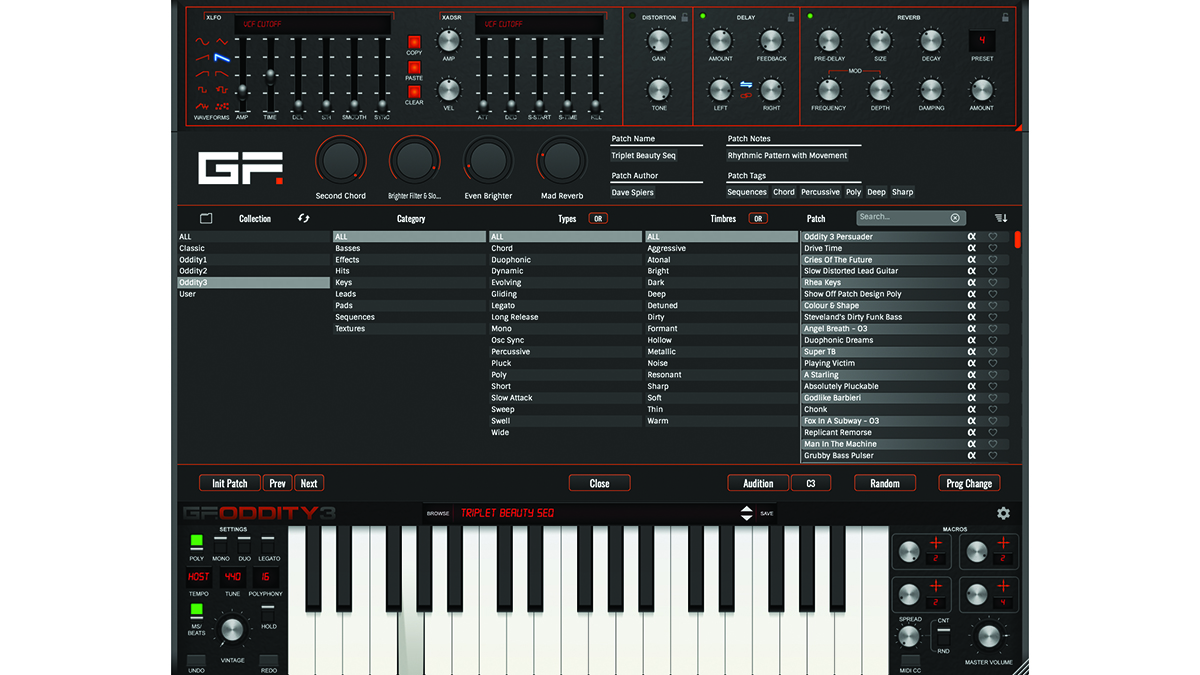
Presets
It’s not unusual for classic synth emulations to offer a paltry selection of presets, and this could be influenced by the original hardware, which maybe only had a handful of presets if any.
Thankfully, GForce has followed the totally opposite path with the Oddity emulations and in version 3 the 1000 or so legacy presets from versions 1 and 2 have been overhauled, recategorised and tagged. They are joined by 66 presets based on the original 1976 and 1981 manual patches, and a raft of brand-new presets from the GForce team and renowned synthesists.
That’s a whopping 1250+ presets in total that you can filter by category, type and timbre, search by name, and then audition using the Audition button in the brand new Browser. There’s a user-editable favourites list and a factory-set alpha list. You also have four Macro knobs, so where applicable you can try out the Macros while preset surfing.
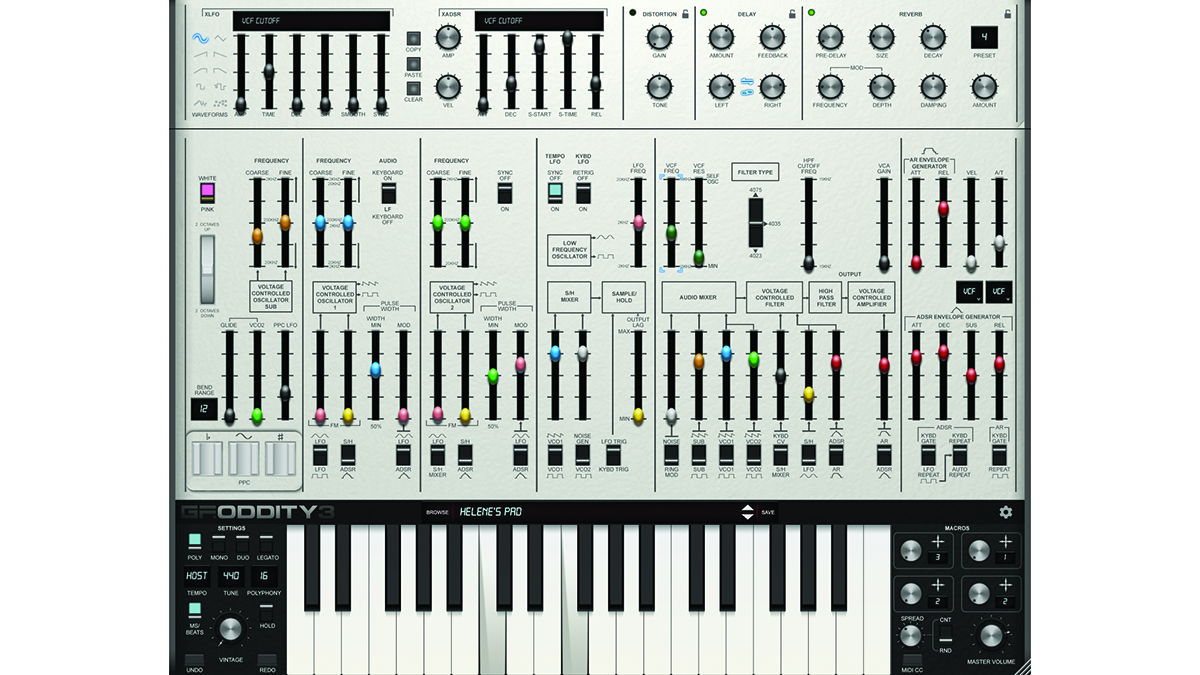
With softsynths, it’s easy to get stuck in a ‘more of everything’ mindset, but GForce continues to show that combining classic core designs with contemporary features is equally valid, and although Oddity3 may be based on a classic synth, it has become so much more than that. Top marks.
MusicRadar verdict: Oddity3 looks good, plays great and sounds awesome, and is now so much more than a classic synth emulation.
GForce Software Oddity3: The web says
"Oddity 3 delivers an exquisite Odyssey experience. However, it is where it expands on that paradigm that it truly begins to shine. The sonic breadth and depth should not be possible from such a simple sound engine."
Gearnews
GForce Software Oddity3: Hands-on demos
GForce Software
Synth Anatomy
Miles Away
Nu-Trix The Synth Guy
GForce Software Oddity3: Specifications
- Mac: Minimum system requirements: Intel or Apple Silicon Mac, macOS 10.13 or above. Intel & Apple Silicon Native, Standalone Application, AudioUnit, AAX, VST2, VST3.
- PC: Minimum system requirements: 2GHz CPU with 2GB RAM, Windows 7 and above. Standalone Application, VST, VST3, AAX.
- CONTACT: GForce Software
Computer Music magazine is the world’s best selling publication dedicated solely to making great music with your Mac or PC computer. Each issue it brings its lucky readers the best in cutting-edge tutorials, need-to-know, expert software reviews and even all the tools you actually need to make great music today, courtesy of our legendary CM Plugin Suite.
